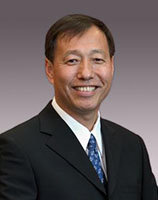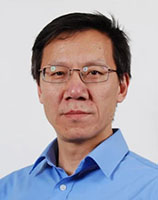Speakers of PRIS 2024
Keynote Speaker I

Prof. Ruxu Du
Fellow of Canadian Academy of Engineering
The Zhongke Jianchi Biotechnology Co., Ltd, China
Keynote Lecture: ChatGPT and precision Dentistry
Abstract: TBD
Biography: Prof. Ruxu Du was born in China in 1955. He received his Master’s degree from the South China University of Technology in 1983 and his Ph.D. degree from the University of Michigan in 1989. He has taught in the University of Windsor, in Windsor, Ontario, Canada (1991⎯1999), the University of Miami, in Coral Gables, Florida. USA
(1999⎯2001), the Chinese University of Hong Kong in Hong Kong SAR (2001⎯2018), and the South China University of Technology (2018⎯2021).
Prof. Du is the founding director of the Guangzhou Chinese Academy of Sciences Institute of Advanced Technology (2011⎯2016), the founding dean of S. M. Wu School of Intelligent Engineering, South China University of Technology, as well as the founding director of the Institute of Precision Engineering in the Chinese University of Hong Kong.
Porf. Du’s areas of research include AI applications in medicine, precision engineering, design and manufacturing (metal forming, machining, plastic injection molding and etc.), as well as robotics and automation. He has published over 500 papers in various academic journals and international conferences. He is the associate editor / the members of editorial board of six international journals. <Learn More>
Keynote Speaker II

Prof. Hujun Yin
Senior member of the IEEE
The University of Manchester, UK
Keynote Lecture: Deep Learning: Challenges, Opportunities and Risks
Abstract: In this talk I will give a brief update on deep learning touching on AI, a topic that is causing both excitement and fear in the public. Before its seemingly sudden emergence, researchers had long been working on statistical learning methods and artificial neural networks for effective and efficient ways of dealing with and understanding increasing amount of data of increasing complexity, dimensionality and volume in many sectors. Deep learning emerged as the ultimate winner in this short evolutionary race, not only because it doesn't require sophisticated and precise mathematical models but also because it works and it's model agnostic. With the advent of computing hardware, namely GPUs, it has become the mainstream methodology for many data-driven machine learning tasks, e.g. vision, with abundant architectures being developed. However, deep learning is fallible and failure can be catastrophic. Challenges lie in not just boosting its performances but also how to elucidate rationales behind its decision process, making it explainable. Therefore, physics informed neural networks, graphs and attention mechanisms are being injected into the deep learning in various applications from mechanical modelling and image analysis to natural language processing. Manifold concept is also a useful means of making sense of deep learning by aligning feature elements so to uncover its possible shortfalls or instabilities. It has played an important role in data representations in early days and is the hidden basis for nowadays generative models. Real-world projects and case studies from my team will be used to illustrate the challenges and huge opportunities presented in front of us and the fact that there are increasing numbers of sectors requiring deep learning solutions that cannot be overtaken by the ever popular large language models. Potential risks of the technology will also be discussed.
Biography: Prof. Hujun Yin is a Professor of Artificial Intelligence at the University of Manchester. He was the head of Business Engagement in AI and Data for the Faculty of Science and Engineering 2019-2023. His research areas include AI, machine learning, deep learning, signal/image processing, pattern recognition, time series modelling, bio-/neuro-informatics, and interdisciplinary applications. He has supervised over 30 PhD students and published over 200 peer-reviewed articles. Prof. Yin has received research funding from UK research councils, EPSRC, BBSRC, Innovate UK and industries. Many of his projects involve industries and local SMEs in developing cutting edge AI solutions. He has served or had been serving as an Associate Editor for IEEE Transactions on Neural Networks, IEEE Transactions on Cybernetics, IEEE Transactions on Emerging Topics in Computational Intelligence, and the International Journal of Neural Systems. He has also served as the General Chair or Programme Chair for a number of international conferences in AI, machine learning and data analytics. He is a member of the EPSRC Peer Review College, a senior member of the IEEE, and a Turing Fellow of the Alan Turing Institute (2018-2023). <personal webpage>
© PRIS 2019-2024 | Hong Kong, S.A.R, China | All rights reserved.